
From warding off intruders to protecting from falls, bars on windows can make a home much more secure. Here’s how much it costs to install bars on windows.
We’ve got you covered


Different types of home security systems defend your living space against different hazards, whether it’s intruders or unexpected accidents. There are 12 main types of home security systems: entryway sensors, motion sensors, base stations, security cameras, video doorbells, home automation devices, floodlights, panic buttons, glass break sensors, smoke and fire detectors, carbon monoxide detectors, and water leak detectors. Here’s a look at how they all compare so you can decide which is best for your home.
| Type | Usage |
|---|---|
| Entryway Sensors | Detect when a door opens |
| Motion Sensors | Detect motion such as someone walking down the hallway |
| Base Stations | The central connectors of various sensors and security systems |
| Security Cameras | Provide audio-visual monitoring of an area |
| Video Doorbells | Show you who is on your doorstep |
| Home Automation Devices | Control smart appliances |
| Floodlights | Illuminate key areas at night |
| Panic Buttons | Trigger your security system and call for help |
| Glass Break Sensors | Detect when windows or glass doors are broken |
| Smoke and Fire Detectors | Detect smoke and fire |
| Carbon Monoxide Detectors | Detect carbon monoxide |
| Water Leak Detectors | Detect water leaks |
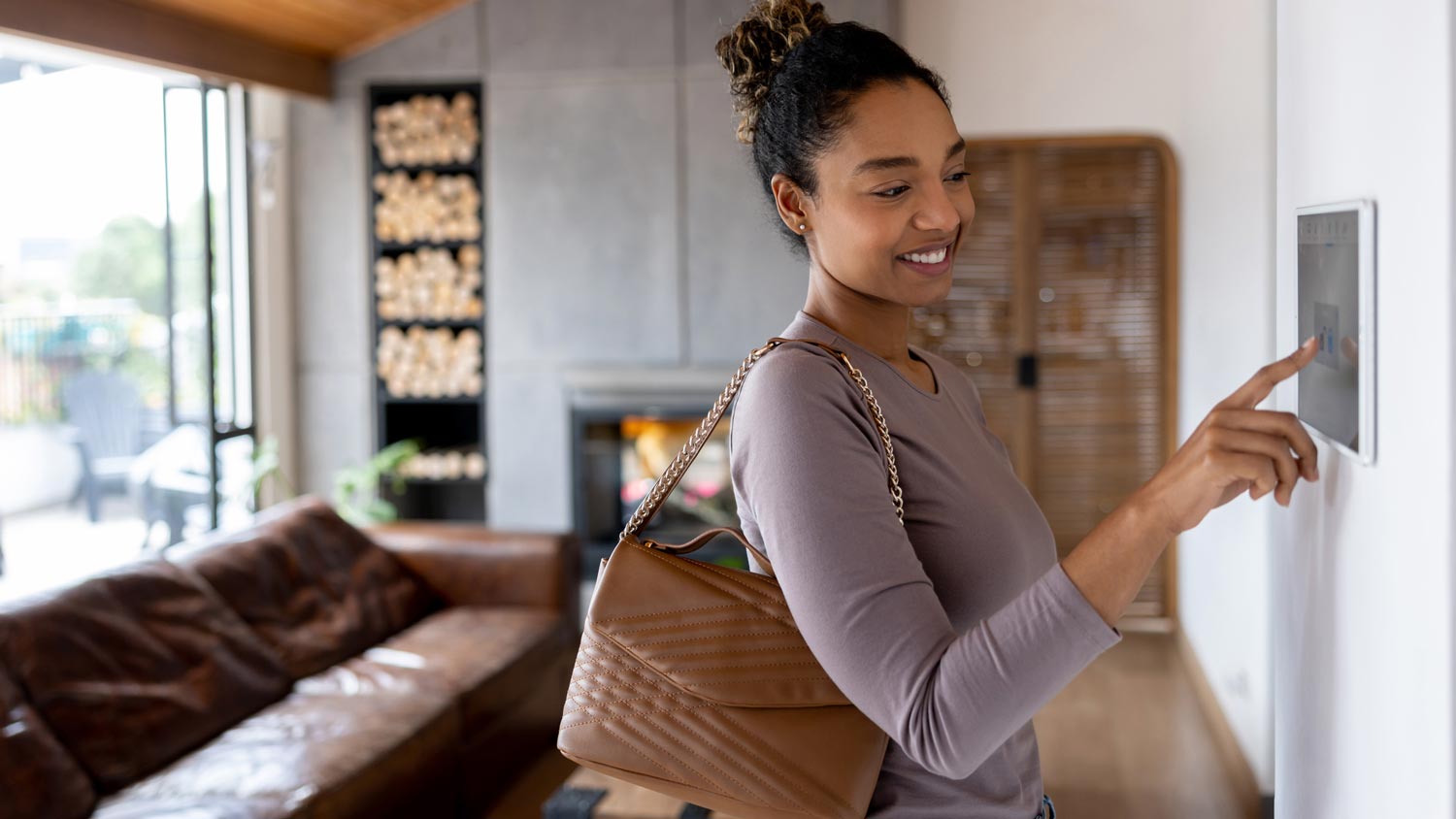
Entryway sensors detect the motion of an opening door and send an alert to your central system or sound an alarm. In addition to using them on your home’s doors, you can use them to protect cabinets and safes. They do not, however, detect breaking glass.
Basic entryway sensors start at $15 per sensor, whereas smart options can cost over $200. Most entryway sensors are easy to DIY install.
| Pros | Cons |
|---|---|
| Easy to install | Usually very visible, which affects decor |
| Can be used on cabinets and safes | Don’t detect glass breaking |
| Rental-friendly | Costs add up if you need multiple sensors |
Best for: Rental apartments and properties with few entry points

Motion sensors, or motion detectors, respond to movement in targeted areas. They are suitable for indoor and outdoor use, although installing motion sensors in a busy outside area can lead to multiple false alarms triggered by wildlife. Basic motion sensors cost around $40 each.
| Pros | Cons |
|---|---|
| Detect movement inside and outside your home | Can be triggered by pets unless pet-friendly models are used |
| Easy to install | Hard to operate in large households with many people |
| Prices vary drastically depending on the | |
| brand |
Best for: Small households without pets

Base stations are the central core of your home security system. They receive signals from different sensors and respond by setting off the alarm. Some base stations can also contact the police in the case of an emergency. Newer versions of base stations even allow you to monitor and control everything via a mobile app.
Base stations cost about $120 on average. If you already use cameras and sensors manufactured by the same brand, it would be wise to upgrade your home security system with a base station for centralized control.
| Pros | Cons |
|---|---|
| May allow you to monitor your home remotely | May require a subscription or other add-on fees |
| May alert you if a sensor is malfunctioning | Visible and not always aesthetically pleasing |
| May automatically dial 911 in an emergency | May only work with sensors made by the same brand |
Best for: Homeowners who are frequently out of the house and want to keep tabs on everything
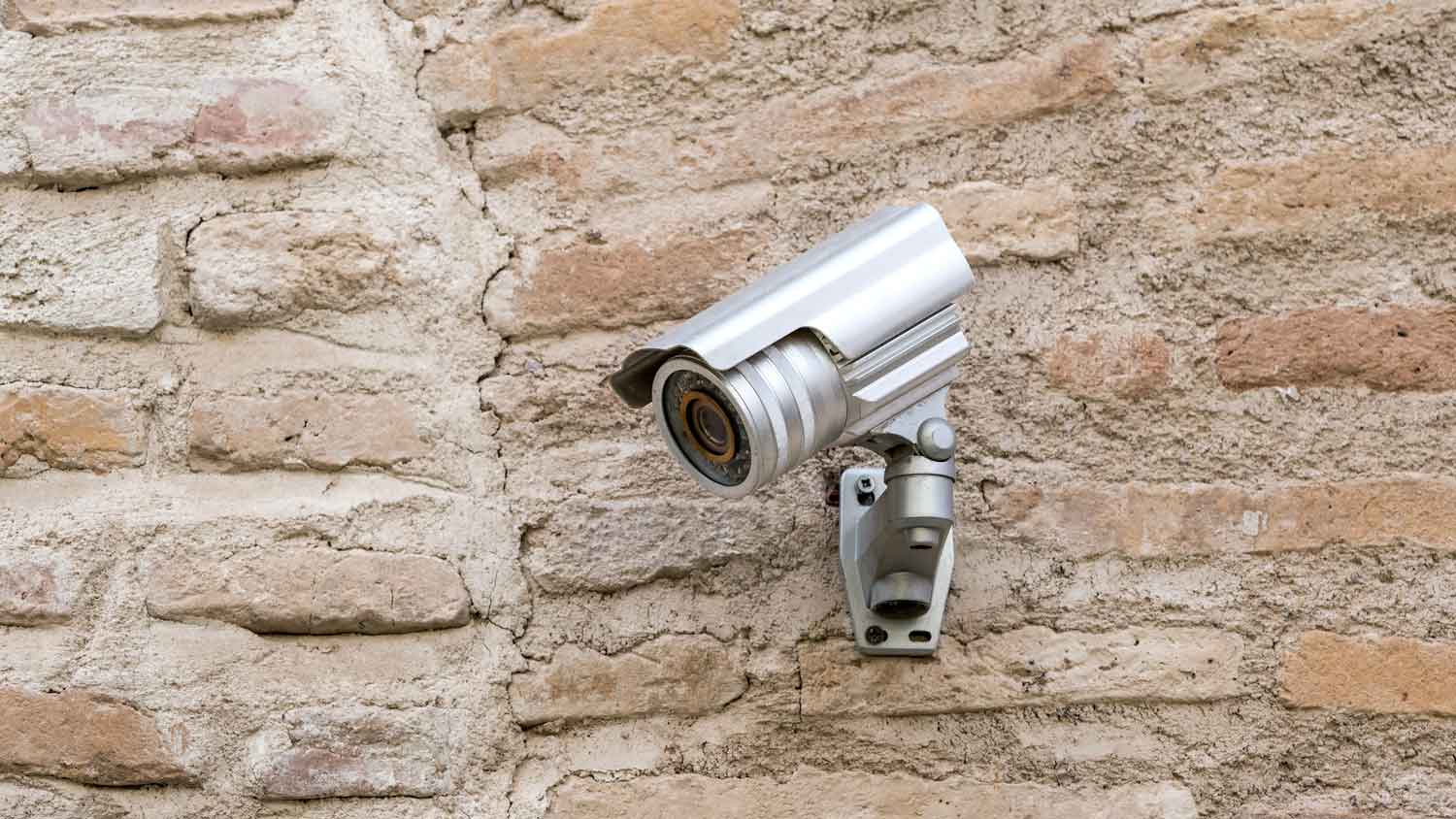
Usable inside and outside the home, security cameras monitor everything and can provide important documentation should there be an incident.
Individual cameras can cost as little as $30 each, but high-end systems can cost hundreds. It all depends on how sophisticated you’d like your cameras to be and whether you need to connect them to other home security components. Some cameras come with motion sensors, and others can record audio alongside video. Most modern cameras can store footage in the cloud, but older versions may still have a physical storage card.
Security camera installations cost $594 to $2,040 on average. It’s best to hire a pro for the installation to ensure proper security camera placement.
| Pros | Cons |
|---|---|
| Fully monitor an area 24/7 | High installation cost |
| May serve as a theft deterrent | May require a subscription to access footage |
| Provide footage for investigation after an incident | Privacy concerns |
Best for: Homes with lots of valuables, multiple entryways, or in higher-crime neighborhoods
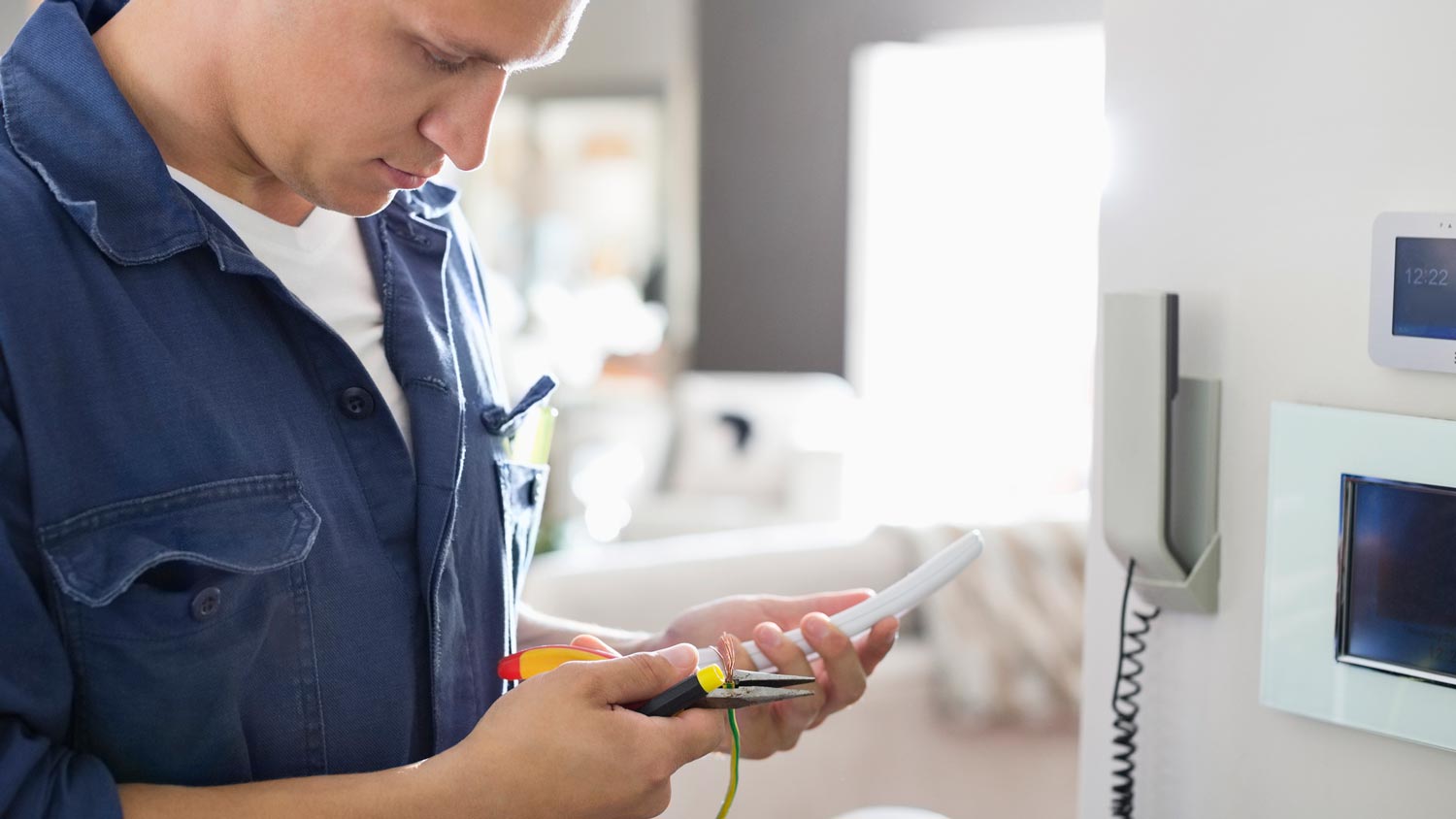
Video doorbells let you see who’s at your front door (and decide whether or not you want to respond). They can also help you catch that porch pirate who’s been taking your packages. Some doorbell cameras also have built-in motion sensors, which provides additional peace of mind.
A name-brand security doorbell ranges from $120 to $250. You can also find lower-end options that cost less than $100.
| Pros | Cons |
|---|---|
| 24/7 monitoring of your front door | Limited field of view |
| Let you keep track of deliveries | Built-in motion sensors can trigger false alarms |
| Wired options require minimal maintenance | Privacy concerns |
Best for: People who get a lot of packages—or visits from solicitors
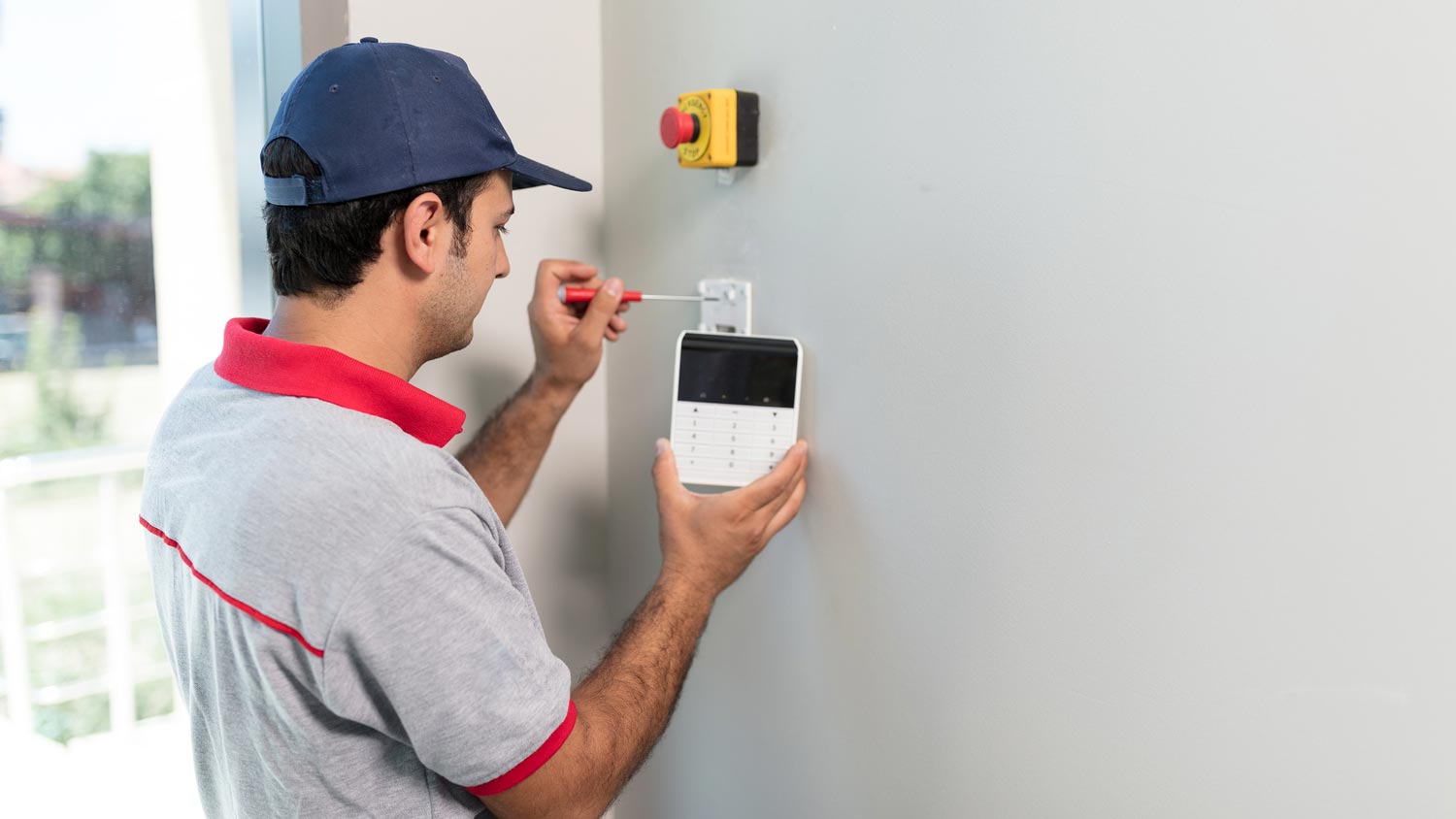
These are smart devices you can program and control, typically via an app—things like lightbulbs, deadbolts, and garage doors. Home automation devices offer enhanced convenience as well as multiple levels of security to keep your loved ones and valuable assets protected.
Some automated upgrades, such as automatic driveway gates, also increase your property value. The cost for home automation devices varies significantly, ranging from a couple hundred to thousands of dollars.
| Pros | Cons |
|---|---|
| Gives you convenient hands-free access to your property | Malfunctions can lead to lockouts and other security problems |
| May increase your property value | High upfront costs and may require |
| professional installation |
Best for: Busy families who come and go frequently
Floodlights provide great protection for your home from dusk to dawn. Floodlights come in different coverage areas and brightness levels. Generally, lights that are 120 watts and above are suitable for outdoor usage, although homes in remote areas may require stronger lighting for nighttime safety.
Floodlights vary from $15 per light to over $100, depending on wattage and whether the lights are equipped with motion sensors. Floodlights are fairly easy to install as long as you’re comfortable with climbing up a ladder.
| Pros | Cons |
|---|---|
| Overnight protection | Light glare can be an issue |
| Better visibility at night for improved safety | Extra energy consumption, especially for higher wattage lights |
Best for: Properties in poorly-lit neighborhoods or remote areas
Panic buttons, or panic alarms, come in different shapes, sizes, and forms. They can be wall-mounted or portable. These buttons can sound an alarm or automatically call for help. Some panic buttons also have duress button functionality, which sends out a silent distress signal to 911 without alerting the intruder.
Panic buttons can be installed in various places throughout your home, such as places with higher risks of slips and falls, like the bathroom. They cost about $20 to $50 each.
| Pros | Cons |
|---|---|
| Allow someone in crisis to trigger an alarm | Can be triggered by accident |
| Some models automatically contact 911 on your behalf | The person in need of help may not be able to reach the panic button |
Best for: Elderly residents or people with health conditions
As the name suggests, glass break sensors are specifically designed to alert you if glass is shattered, whether by forceful intruders or inclement weather. They can work independently or be paired with entryway sensors.
You can find affordable two-pack sensors for slightly over $20 at your local hardware store, although higher end models may cost $40 or more per sensor.
| Pros | Cons |
|---|---|
| Extra layer of protection against burglars | Doesn’t detect openings and closings |
| Alerts you to storm damage or other accidents | Doesn’t respond to glass cutters |
| Stay on even if you turn off motion sensors when you’re at home | Can send false alarms due to the vibration from slamming doors or windows |
Best for: Single family homes and lower-level apartments with glass windows and doors
Most states have mandatory requirements for homes to have a certain number of smoke and fire detectors. Smoke alarm installation costs between $70 to $150 on average. It’s best to hire a local home security company to install smoke and fire alarms to ensure you follow local requirements for alarm quantities and placement.
| Pros | Cons |
|---|---|
| Detects smoke before a fire starts to spread | Can send false alarms due to normal activities like cooking |
| Loud alarm designed to wake sleeping people | Need regular battery replacements |
Best for: Every home should have smoke and fire detectors
Carbon monoxide detectors can alert you to high levels of carbon monoxide, which is both odorless and potentially dangerous to your health. They are highly recommended for homes with gas stoves, gas heating, or attached garages. Some states may have mandatory requirements on how many carbon monoxide detectors must be installed in a home. It costs $125 to $228 to install each detector.
| Pros | Cons |
|---|---|
| Protect your family from carbon monoxide poisoning | Don’t detect fire or smoke |
| Last 5 to 7 years | False alarms are possible |
Best for: Homes that use natural gas or have an attached garage
Water leak detectors monitor the flow of water in your home via strategically placed sensors throughout your plumbing system. These sensors usually rely on ultrasonic wavelengths or mechanical turbines to detect leakages. Moisture-measuring sensors can be installed separately for under-the-sink or point-of-use applications.
Whole-house detection systems should be installed by a pro and can cost $350 to $700 on average. Moisture sensors are easy to DIY install and can cost as little as $10 per sensor.
| Pros | Cons |
|---|---|
| Alert you to leaks before they cause major water damage | Basic detectors won’t turn off the water in the event of a leak |
| Can help save you money on your water bill | Ultrasonic sensors may not work well with PVC pipes |
Best for: Homes with older plumbing
From average costs to expert advice, get all the answers you need to get your job done.

From warding off intruders to protecting from falls, bars on windows can make a home much more secure. Here’s how much it costs to install bars on windows.
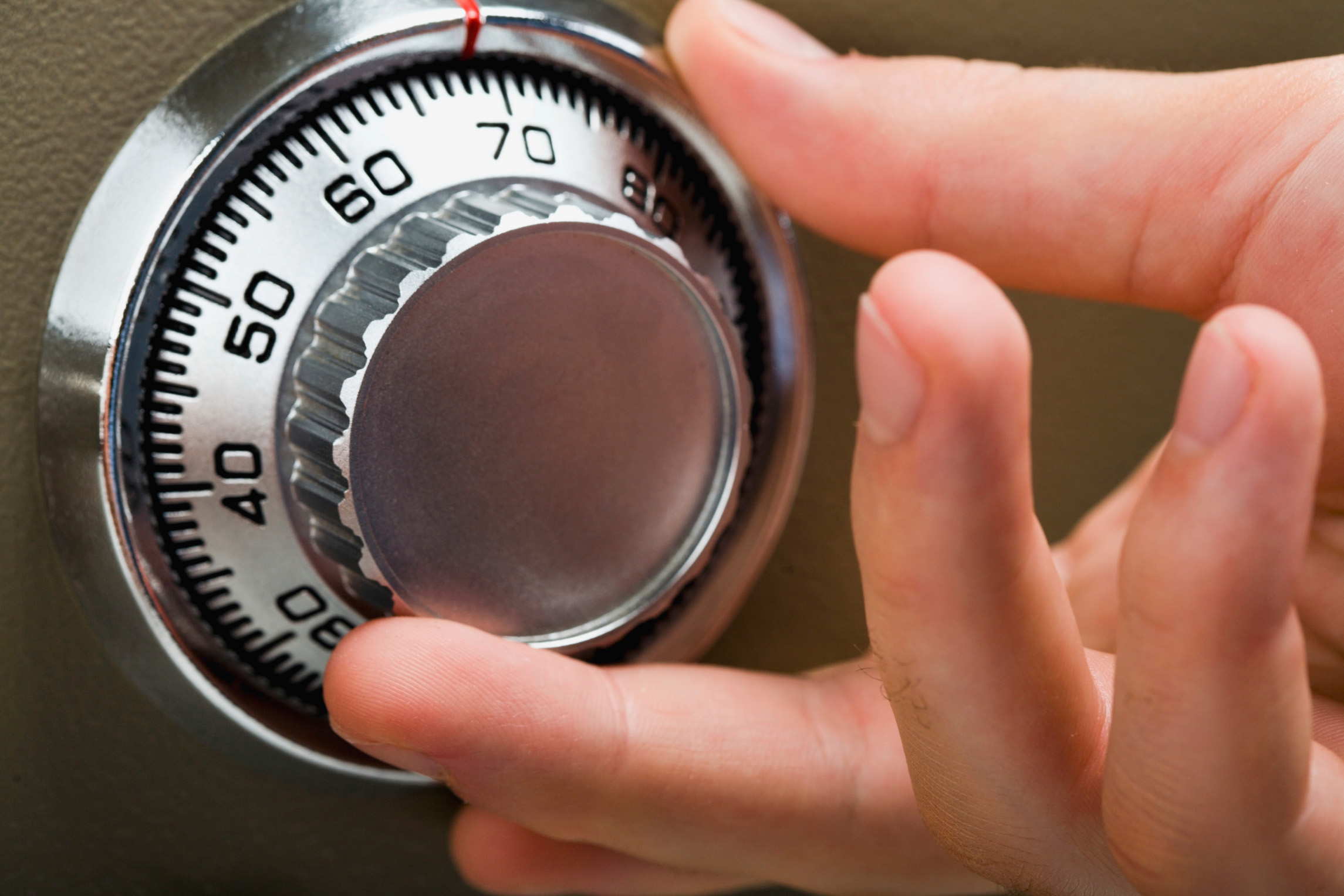
Discover wall safe installation cost details. Learn about average prices, key cost factors, and tips to save on your wall safe project.

Motion-sensor lighting costs vary greatly because they have so many customizations available. Learn more by using this cost guide about motion-sensor lights.

If your security lights aren’t working the way you expect, you may need to troubleshoot. Learn how to reset a motion detector flood light with this guide.
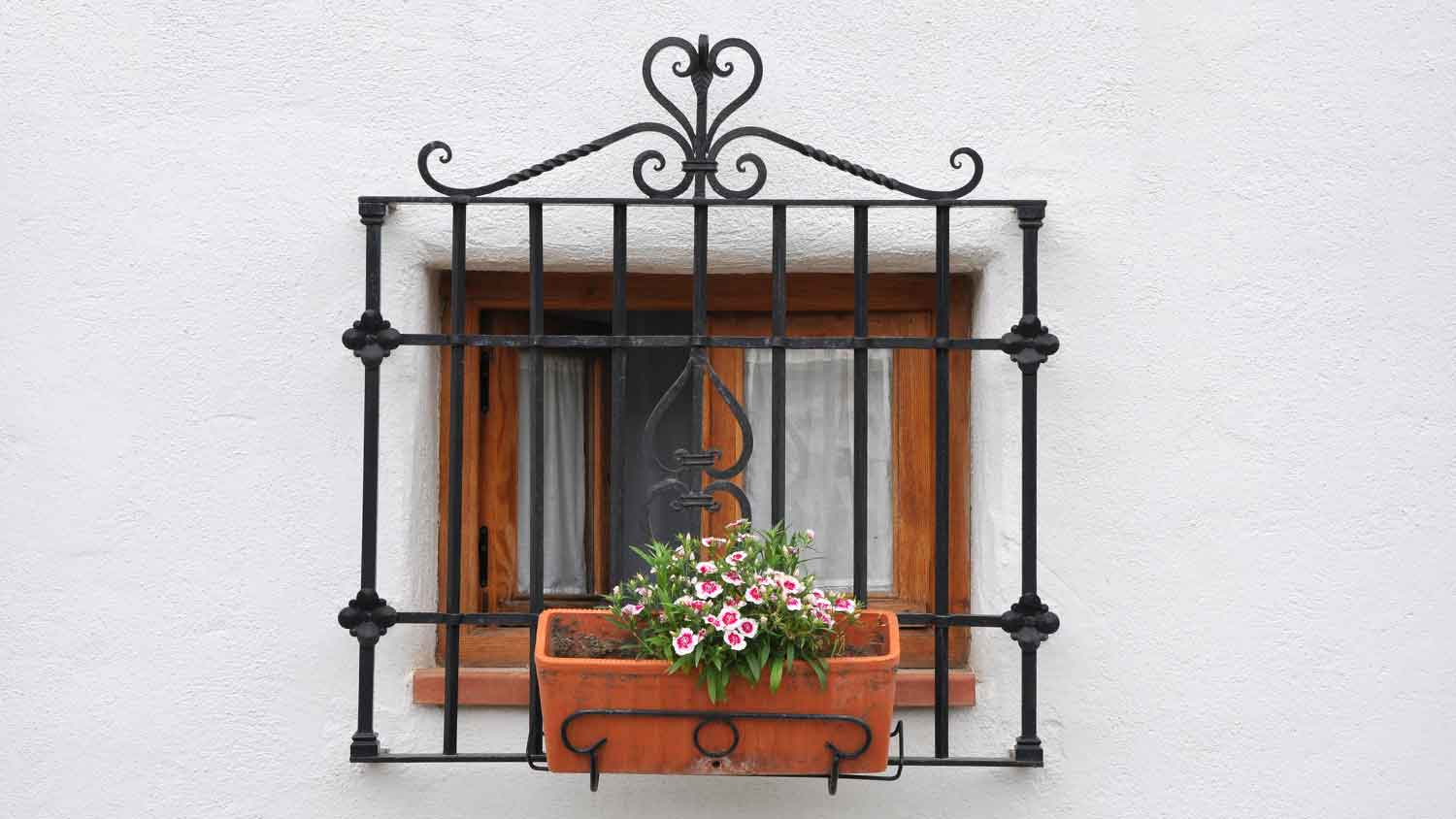
Not sure who to hire to install or repair security bars? Explore top pro options, learn how installations work, and plan your next steps.

Learn about wired versus wireless security cameras to decide which option offers more reliable surveillance at your home.